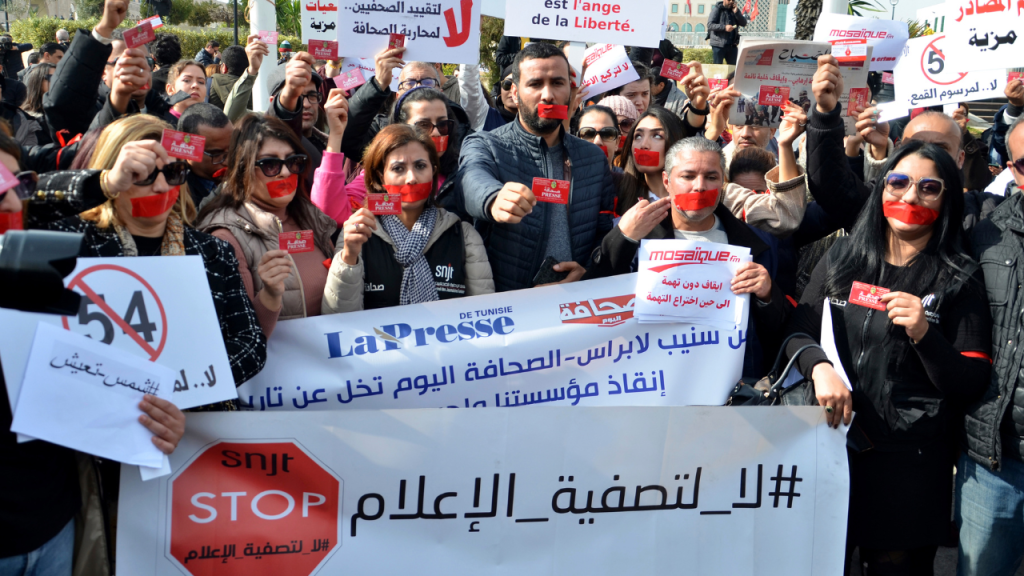Two Tunisian journalists, Borhane Bsaïs and Mourad Zeghidi, have been sentenced to one year in prison for criticizing the government. The journalists were each given six months for disseminating “fake news” and an additional six months for “making false statements with the aim of defaming others,” specifically referencing Tunisian President Kaïs Saied. The journalists denied the allegations, pointing to Tunisia’s laws protecting freedom of expression that were established after the 2011 revolution.
The sentences come less than two weeks after the journalists were arrested and are part of a broader crackdown on journalists, activists, and lawyers under Decree 54, a law passed in 2022 to combat cybercrime. This law criminalizes the dissemination of “fake news” that is deemed harmful to public safety or national defense. Critics have argued that the law is vaguely defined and is being used to target the president’s critics, stifling freedom of expression.
Both Bsaïs and Zeghidi maintained their innocence in court, stating that they were simply performing their jobs by analyzing and commenting on political and economic developments in Tunisia. Bsaïs, host of the radio show “Emission Impossible,” was accused of undermining the president on air and through Facebook posts dating back to 2019. The journalists highlighted the importance of freedom of expression and expressed concern about being targeted for their critical opinions.
The trial has sparked international condemnation and criticism within Tunisia, with many journalists rallying in support of Bsaïs and Zeghidi. Zied Dabbar, president of Tunisia’s National Journalists Syndicate, noted that this case is just one example of the broader crackdown on journalists under Decree 54, with 39 journalists already prosecuted under the law this year. Critics have raised concerns about President Saied’s consolidation of power, including the suspension of parliament and rewriting of the constitution, leading to wider discontent with his approach to governance.
The situation in Tunisia reflects broader challenges facing journalists and freedom of expression in the region. As the first country in the Middle East and North Africa to overthrow a longtime dictator in 2011, Tunisia has grappled with upholding democratic values while facing political turbulence and social unrest. The targeting of journalists and activists critical of the government raises questions about the state of democracy and human rights in the country, as well as the need for continued international support and pressure to uphold these fundamental principles.
Overall, the sentencing of Bsaïs and Zeghidi underscores the ongoing tensions between the government and the media in Tunisia. The case highlights concerns about the shrinking space for independent journalism and the need to protect freedom of expression in the face of increasing censorship and legal restrictions. As Tunisia navigates its post-revolution landscape, the treatment of journalists and activists will continue to be a critical indicator of the country’s commitment to democracy and human rights.













